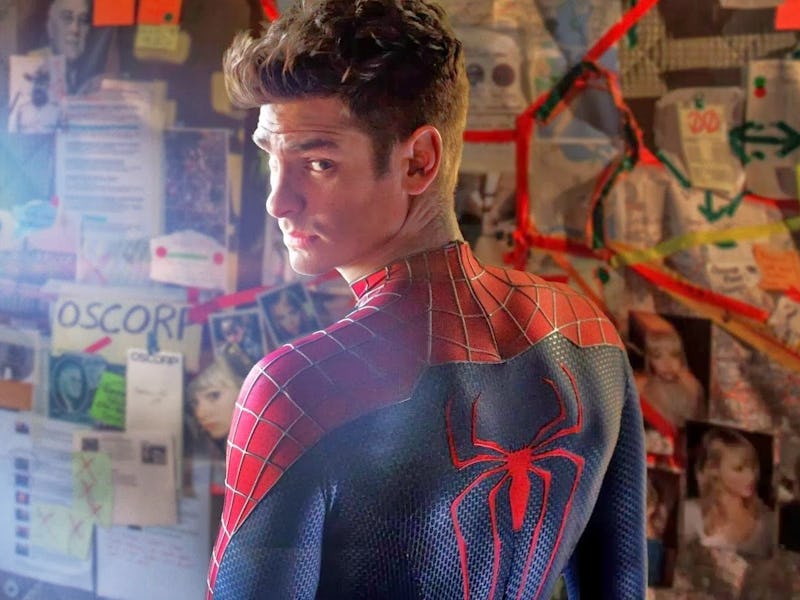
Andrew Garfield and Amy Adams both sound deeply unhappy about their roles as iconic comic book characters, and they both have said it’s for the same reason: Superhero movies care more about the canon than the characters.
In an interview with Variety, Garfield and Adams chatted about their roles as Spider-Man and Lois Lane, and agreed that the roles they signed on to play were more devices for an overall narrative than unique, complex characters. This isn’t the first time that Adams has spoken dismissively about her role as Lois Lane, as she recently shrugged off filming her appearance in the upcoming Justice League.
“I signed up to serve the story and to serve this incredible character I’d been dressing as since I was three. And then it gets compromised, and it breaks my heart. I got heartbroken a little bit,” Garfield said.
“You’re doing something in service of something — the character is serving the story or serving a canon,” Adams replied.
What they’re saying actually makes a lot of sense, from both an acting and a storytelling standpoint. Comic books have a decades-long history that has thrived through consistency. There have been loads of characters and plots over the years, but they always come back to the same general ideas of fighting evil, helping those in need and saving the day. While it’s important to keep consistency with comic book franchises, given their history, it does leave little room for actors to make a role their own without being dismissed as “not canon.”
When putting stories like Captain America and Justice League on the big screen, there are certain rules that have to be abided, and they have a big impact on how someone tells the story. Batman’s parents always get killed, Spider-Man gets bitten by a spider, Doctor Strange learns magic, Wonder Woman is an Amazonian. Sure, storytellers can slightly bend the rules to create a new interpretation — like Heath Ledger’s portrayal of Joker in The Dark Knight — but it always comes down to constants in the already existing franchises.
It’s because of this that Adams really got the shaft with her reduced role in Batman v Superman. Lois Lane was presented as a major player in Man of Steel, promising more involvement for her in future films, but canon dictated that Batman’s introduction to the franchise take on a much larger role. Adams’s Lois Lane was shuffled off to the side as a typical girlfriend trope, with several of her scenes removed from the theatrical cut. In Garfield’s case, his Spider-Man walked a fine line between comical and depressing, unable to fully break away from the shadow of the previous franchise to establish itself as anything other than a “darker Spider-Man.”
The only time we get real problems is when comic book movies take massive detours from the accepted narrative. For example, in Man of Steel, Superman violently kills General Zod, breaking the audience’s understanding of the character. Henry Cavill may have acted that scene very well, giving us an emotional connection to his struggles and decision, but it wasn’t something many fans could imagine Superman doing. So, no matter how convincing Cavill was in his portrayal, audiences couldn’t accept Superman killing another person.
Comic book film series are now some of the world’s largest franchises, bringing in billions of dollars and securing years of work for their stars. However, in such a behemoth industry, actors have to shape their character to serve the canon, not the other way around.